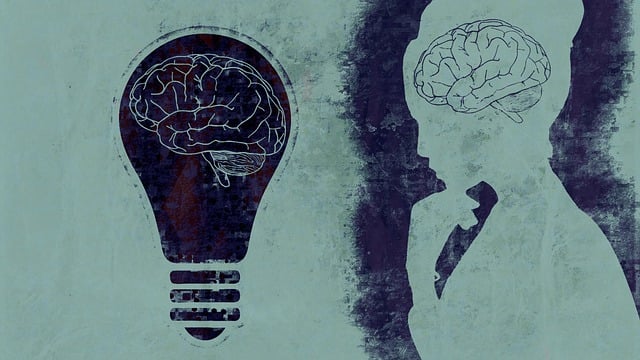Northglenn Anxiety Therapy prioritizes risk assessment in mental health care, addressing internal and external factors to anticipate and mitigate potential hazards to patient well-being. Through tailored strategies for emotional regulation, community outreach like mental wellness journaling, specialized services focusing on anxiety disorders, and empowerment through coaching programs and self-care practices, they strive for a harmonious balance between patient care and personal well-being. Employing techniques such as emotional intelligence, mindfulness meditation, and compassion cultivation, Northglenn Anxiety Therapy enhances connections, stress management, and treatment outcomes, reflecting their core values.
Mental health professionals constantly navigate complex landscapes, requiring meticulous risk assessment to ensure patient safety and effective care. This article delves into the essential practices of risk evaluation in mental health settings, highlighting unique considerations relevant to Northglenn Anxiety Therapy. We explore strategies tailored for managing risks associated with anxiety disorders, enhancing therapeutic outcomes, and fostering secure environments. By understanding these methods, professionals can optimize their approach to patient care, particularly within the context of specialized therapy practices like Northglenn Anxiety Therapy.
- Understanding Risk Assessment in Mental Health Practice
- Unique Considerations for Northglenn Anxiety Therapy
- Strategies to Mitigate Risks and Enhance Patient Care
Understanding Risk Assessment in Mental Health Practice

In the field of mental health, risk assessment is a vital tool used by professionals to identify and mitigate potential hazards that may impact patient well-being. This process involves thoroughly evaluating various factors that could pose risks during therapy sessions or community outreach programs, such as those offered by Northglenn Anxiety Therapy. By understanding these risks, therapists can implement tailored strategies to enhance emotional regulation among their clients.
A comprehensive risk assessment considers both internal and external elements. Internally, it delves into the patient’s history, including past traumas, mental health disorders, or substance abuse issues, which might trigger anxiety or other emotional dysregulations. Externally, it examines environmental factors like cultural background, socioeconomic status, and access to support systems, as these can influence a person’s overall mental wellness. For instance, a mental wellness journaling exercise guidance can be part of the therapeutic process, helping individuals track and manage their emotions effectively. Additionally, community outreach programs play a significant role in risk mitigation by fostering connections and providing resources that promote resilience and emotional stability.
Unique Considerations for Northglenn Anxiety Therapy

Northglenn Anxiety Therapy brings a unique set of considerations to the mental health landscape. Given the nature of anxiety disorders, therapists in this region face the challenge of fostering an environment that promotes both vulnerability and safety. Building resilience is paramount; clients often struggle with feelings of unease and fear, so therapists must develop strategies to help them navigate these emotions effectively. This involves not only teaching coping mechanisms but also encouraging self-care practices tailored to each individual’s needs.
The development of Mental Wellness Coaching Programs can play a pivotal role in this process. By incorporating techniques that enhance mental wellness, therapists in Northglenn can empower clients to manage anxiety symptoms and improve their overall quality of life. Moreover, integrating Self-Care Practices into therapy sessions equips individuals with the tools to prioritize their well-being, fostering a sense of balance and control in their lives.
Strategies to Mitigate Risks and Enhance Patient Care

Mental health professionals are tasked with a delicate balance: providing compassionate care while managing their own well-being. To mitigate risks and enhance patient outcomes, Northglenn Anxiety Therapy advocates for a multi-faceted approach that includes cultivating emotional intelligence, incorporating mindfulness meditation practices, and embracing compassion cultivation techniques.
Emotional Intelligence equips therapists to recognize and understand both their own emotions and those of their clients, fostering deeper connections and more nuanced interventions. Mindfulness Meditation promotes focus, self-awareness, and stress reduction, allowing professionals to remain calm and present during challenging sessions. Compassion Cultivation Practices encourage a non-judgmental attitude, empathy, and genuine care, ultimately improving patient relationships and treatment effectiveness.
Mental health professionals, like those offering Northglenn Anxiety Therapy, operate in a complex environment that demands meticulous risk assessment. By understanding potential risks and implementing strategies outlined in this article, therapists can enhance patient care while ensuring their own well-being. Unique considerations specific to Northglenn Anxiety Therapy highlight the importance of tailored risk management, ultimately fostering a safer and more effective therapeutic environment.








